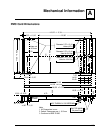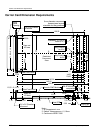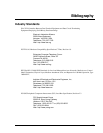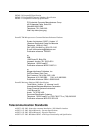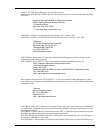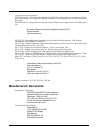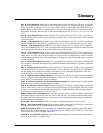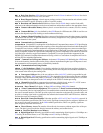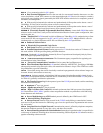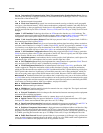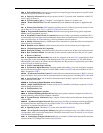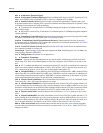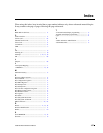
Glossary
126 Interphase Corporation
STS Synchronous Transport Signal
STS1 Synchronous Transport Signal level 1 Basic building block signal of SONET, operating at 51.84
Mbps. Faster SONET rates are defined as STS-n, where n is a multiple of 51.84 Mbps.
SVC Switched Virtual Circuit Virtual circuit that is dynamically established on demand and is torn
down when transmission is complete. SVCs are used in situations where data transmission is sporadic. Called
a switched virtual connection in ATM terminology.
T1 T1 transmits DS1-formatted data at 1.544 Mbps through the telephone-switching network, using
AMI or B8ZS coding.
T3 Digital WAN carrier facility. T3 transmits DS3-formatted data at 44.736 Mbps through the telephone
switching network.
TCP Transmission Control Protocol Connection-oriented transport layer protocol that provides reliable
full-duplex data transmission. TCP is part of the TCP/IP protocol stack.
TCP/IP Transmission Control Protocol/Internet Protocol Common name for the suite of protocols
developed by the U.S. DoD in the 1970s to support the construction of worldwide internetworks. TCP and IP
are the two best-known protocols in the suite.
TFTP Trivial File Transfer Protocol Simplified version of FTP that allows files to be transferred from
one computer to another over a network.
Token Ring Token-passing LAN developed and supported by IBM. Token Ring runs at 4 or 16 Mbps over
a ring topology. Similar to IEEE 802.5.
TTY Teletypewriter General term for an input device.
Tx Transmit or Transmitter
USRBUF A driver structure describing the use of a specific buffer containing payload data to be trans-
ferred using ATM. They can be linked together to allow non-contiguous areas of memory to be sent as one
unit.
X.25 ITU-T standard that defines how connections between DTE and DCE are maintained for remote ter-
minal access and computer communications in PDNs. X.25 specifies LAPB, a data link layer protocol, and
PLP, a network layer protocol. Frame Relay has to some degree superseded X.25.
VBR Variable Bit Rate QoS class defined by the ATM Forum for ATM networks. VBR is subdivided into
a Real Time (RT) class and Non-Real Time (NRT) class. VBR (RT) is used for connections in which there is
a fixed timing relationship between samples. VBR (NRT) is used for connections in which there is no fixed
timing relationship between samples, but that still need a guaranteed QoS.
VCC Virtual Channel Connection Can be a Permanent Virtual Connection (PVC) or a Switched Virtual
Connection (SVC). Any ATM connection between two nodes.
VCI Virtual Channel Identifier16-bit field in the header of an ATM cell. The VCI, together with the VPI,
is used to identify the next destination of a cell as it passes through a series of ATM switches on its way to its
destination. ATM switches use the VPI/VCI fields to identify the next network VCL that a cell needs to transit
on its way to its final destination. The function of the VCI is similar to that of the DLCI in Frame Relay.
VCL Virtual Channel Link Connection between two ATM devices. A VCC is made up of one or more
VCLs.
VPI Virtual Path Identifier 8-bit field in the header of an ATM cell. The VPI, together with the VCI, is
used to identify the next destination of a cell as it passes through a series of ATM switches on its way to its
destination. ATM switches use the VPI/VCI fields to identify the next VCL that a cell needs to transit on its
way to its final destination. The function of the VPI is similar to that of the DLCI in Frame Relay.
WAN Wide-Area Network Data communications network that serves users across a broad geographic
area and often uses transmission devices provided by common carriers. Frame Relay, SMDS, and X.25 are
examples of WANs.




